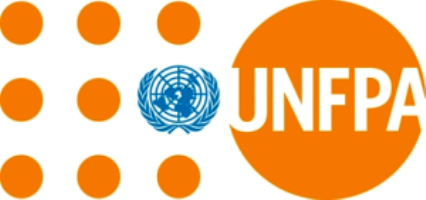The United Nations Population Fund (UNFPA) has urged Nigeria to urgently tackle systemic barriers hindering progress in reducing maternal and neonatal deaths nationwide.
According to the agency, these barriers include limited female autonomy, weak health systems, cultural restrictions, and inadequate financing.
Dr. Lordfred Achu, Technical Specialist for Reproductive and Maternal Health at UNFPA Nigeria, made the call on Wednesday at the ongoing 66th National Council on Health meeting in Calabar.
Achu said long-standing challenges—such as poverty, ignorance, cultural taboos, shortages of skilled health workers, and unequal distribution of personnel—continue to limit women’s access to quality maternal and reproductive healthcare.
He noted that Nigeria records one maternal death every seven minutes and remains among countries with very high maternal mortality ratios, estimated at between 500 and 999 deaths per 100,000 live births.
“Nigeria, India, the Democratic Republic of Congo, and Pakistan account for nearly half of global maternal deaths,” he said.
Achu added that Nigeria’s adolescent fertility rate remains high at 106 births per 1,000 girls, with 24 million girls married before age 18.
He said modern contraceptive prevalence stands at 15 per cent, while unmet need for family planning is 21 per cent, and the national fertility rate is 4.8 births per woman.
“So our contraceptive prevalence is low, and this in many ways contributes to maternal deaths,” he said.
Achu stressed that reducing maternal and neonatal mortality requires more than medical response, noting that political will must be matched with sustained, coordinated multi-sectoral investment.
He acknowledged progress in health facility upgrades and new innovations but warned that shortages and uneven distribution of skilled personnel continue to lead to substandard care.
Achu called for reforms promoting girl-child education, empowering women to make informed health decisions, and fostering community and religious engagement.
“Integrating maternal health discussions into women’s groups and associations, and engaging men through community dialogue, are essential,” he said.
Citing the Nigeria Health Statistics Report 2025, he said the country recorded 20,811 maternal, neonatal, and under-five deaths between January and September 2025.
The report documented 1,244 maternal deaths in the first quarter, 1,232 in the second, and 1,213 in the third. Neonatal and under-five deaths also remained high throughout the three quarters.
Leading causes of maternal deaths included complications of pregnancy, cardiovascular diseases, malaria, cancer, HIV/AIDS, diabetes, sepsis, anaemia, tuberculosis, and neonatal complications.
For neonatal and under-five deaths, the major causes listed were diarrhoea, malnutrition, pneumonia, anaemia, meningitis, sepsis, severe malnutrition, septicaemia, tetanus, and hypoxaemia.
Achu said addressing these challenges requires strong political commitment, socio-cultural reforms, community involvement, strengthened data systems, accountability mechanisms, and targeted health financing.
He emphasized that reducing maternal and neonatal mortality is not only about saving lives—it is also about advancing equality and equity.


